In Part 1 of this article, (click here to view Part 1) you were introduced to Sr. M. Ignatius Croke so you know the family history.
Now you’ll meet her sister Isabella/Sr. Joseph, who distinguished herself in the nursing field during the Crimean War. Before the war, Joseph taught in the local school and visited the sick – poor in their homes and in the crowded fever hospital close to the convent in Charleville. At the age of twenty nine she left the Golden Vale to nurse soldiers in war-torn Crimea.
The Crimean War broke out in 1854 when Russia and Turkey fought over trade routes and access to the Christian shrines in the Holy Land. Britain sided with Turkey and the British War Office asked for sisters to nurse their sick and wounded in the military hospitals. There were thousands of Irish soldiers in the British Army at the time.
Eleven Irish sisters, including Joseph Croke volunteered. Mother Francis Bridgeman from Kinsale was appointed superior and the group spent sixteen months in the war zone, during which time Joseph Croke (and others) kept diaries which give eye-witness accounts of the ravages of war.
Having met in Baggot Street, the sisters travelled to London where they were joined by other sisters and nurses. After a rough passage they arrived at Boulogne, took a train to Paris and made their way across France, seeing the snow-clad Alps in the distance. They boarded an unseaworthy mail boat in Marseilles and almost at once the journey became a life-threatening undertaking. Sr. Joseph describes a dreadful storm: Rain, thunder, lightening. Part of the vessel carried off. Twenty four waves passed over the ship. Water half a yard deep in our cabin. Four men heaving it out.
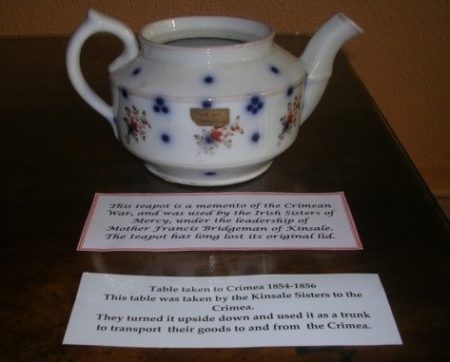
Table and Teapot taken to Crimea
At Athens the natives came on board the ship in very pretty costumes, something like the Highland. An Irish woman, a Sister of Charity, presented oranges and flowers. The sun dried all the sea-soaked clothes.
On arriving in Constantinople they were eager to begin work straight away. However, Florence Nightingale refused to receive them and announced that their coming had been a gross misunderstanding on the part of the War Office. There was neither work for them to do nor accommodation.
Joseph rhymed:
But note as from a Nightingale,
In strains unknown to us before,
Our coming plaintively bewailed,
and warbled: Do not come ashore.
Six weeks later, Sr. Joseph Croke and some of her companions set to work in Koulali where two Turkish barrack buildings were used as hospitals. They found the hospitals filthy and in a state of utmost disorder and the misery within almost complete. The soldiers were crawling with vermin, delirious from fevers, thirst and neglect and many suffered frostbite.
The sisters set up kitchens, made lemonade and rice puddings, mixed arrowroot with port wine and sugar and fed the soldiers who were too weak to feed themselves. They made ward rounds with the doctors, administered medicines, dressed and bandaged wounds. Besides attending to the corporal wants of all the patients we prepared the dying of our own Religion for the Last Sacraments and instructed the sick.
Sister Joseph took over management of the provision store and was also an excellent accountant.
The nuns lived in a little wooden hut. Rain poured through holes in the roof. Their beds were wet and they had to have waterproof covers. Though within earshot of the roar of the cannons, the rats were almost more terrifying. Rats dancing about, scraping under the boards. Occasionally the rats took cold baths in pans of water and dragged pieces of paper up and down the room. The rats and lice brought infections and Crimean fever and typhus were rampant. Croke herself became a victim of Crimean fever and feared she might die. Thankfully she recovered. When peace was declared the Irish sisters joyously set sail to their native land. Co Cork blazed with bonfires and tar barrels in welcome. All in Charleville Convent rejoiced at Joseph Croke’s safe return.
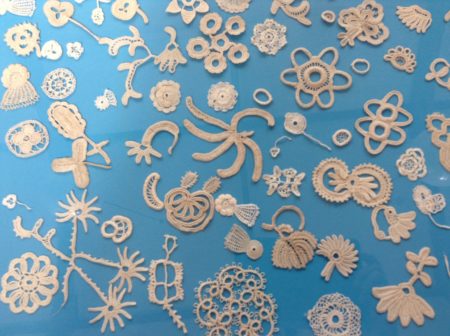 Needlework
Needlework
She remained Superior of the community, intermittently, for almost eighteen years. She also worked in the industrial school where young women were taught crochet and lace making. She was instrumental in founding convents in Buttevant, New Inn, and Bathurst. In 1881 her community took over the nursing in the workhouse hospital in Kilmallock.
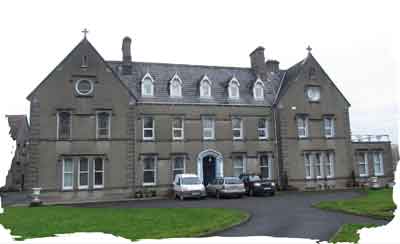 Buttevant
Buttevant
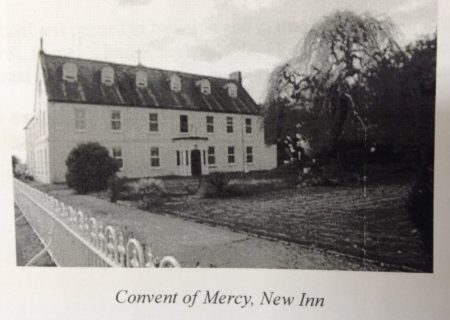
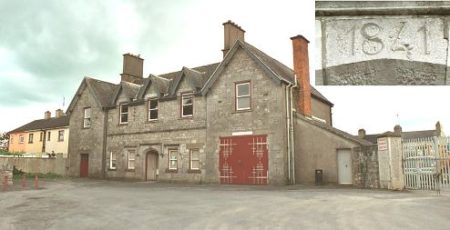 Kilmallock
Kilmallock
She worked hard and tirelessly for the poor until she died of cancer in November 1888 at the age of 63. She is buried in the Convent Cemetery in Charleville.
Maria Luddy edited and published – “The Crimean Journals of the Sisters of Mercy 1854-1856” (Four Courts Press, 2004). Well worth a read!
Bernadette Maria Knopek rsm
Southern Province


